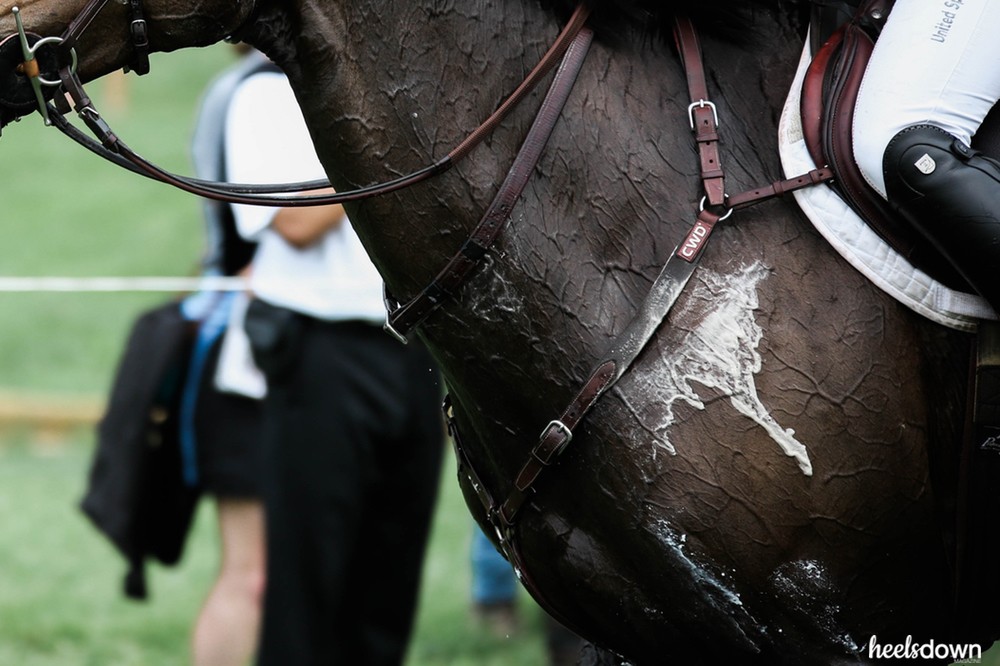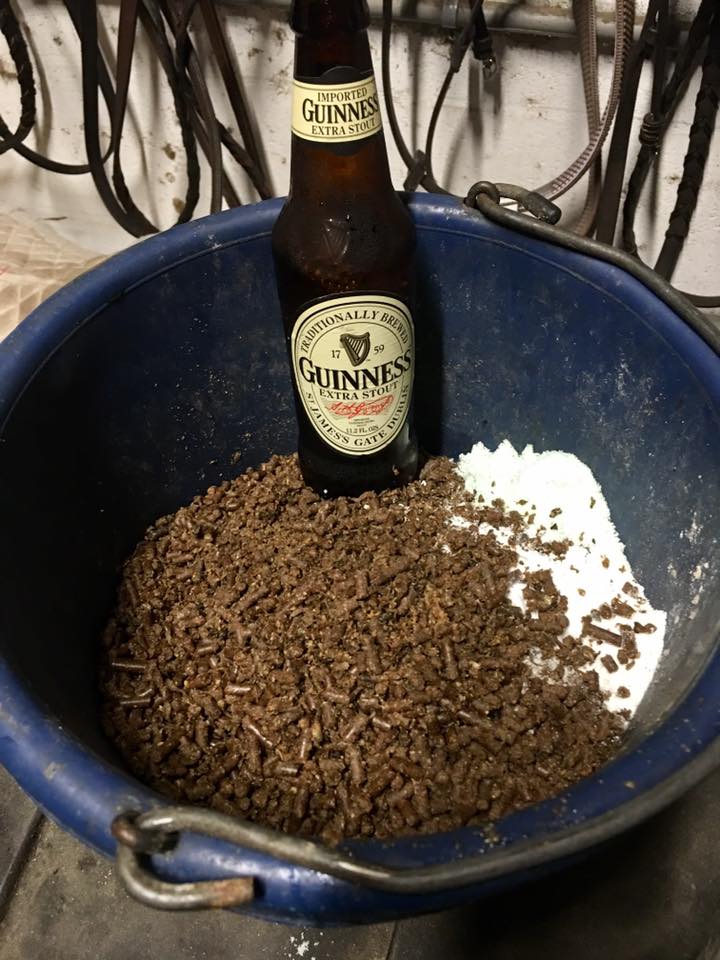My Horse Stopped Sweating. Now What?

He was burning up, completely hot to the touch. My poor Thoroughbred gelding’s nostrils flared and the sides of his barrel heaved as if he couldn’t catch his breath. He didn’t have a lick of sweat on him — not on his neck or chest which would be normal around noon on a 90-degree summer day in Florida. No sweat between his legs or under his cribbing collar, either.
My horse had stopped sweating in the middle of summer and was overheating in his stall.
Anhidrosis is defined as a decreased or inability to sweat, which most commonly manifests in hot and humid climates like Florida and other Gulf Coast states, according to Dr. Martha Mallicote, a veterinarian with the University of Florida’s College of Veterinary Medicine in Gainesville, Fla. It’s a problem that plagues performance horses because thermoregulation, or the ability to regulate the body’s temperature, is so dependent on sweating.
Up to 70 percent of a horse’s body heat is lost during the evaporation process of sweat. A humid environment like Florida decreases the efficiency of sweat evaporation and can overwork the sweat glands to the point of shutting them down altogether.
Roughly 2-6 percent of horses are affected by anhidrosis, according to research by the University of Florida. A recent study of non-racetrack farms in Florida showed that 1.8 percent of horses in the state were anhidrotic and 11.2 percent of farms reported at least one case of a horse that stopped sweating. Horses who come from places with cooler conditions, either from northern states or are imported, are not more prone to anhidrosis than, say, a horse who was born in Florida.
It’s a problem without an exact cure, which made treating my own horse a long and tedious process. There are varying options on what can cause a horse to stop sweating too, which could be related to stress, a metabolic change due to diet change or even a hormonal imbalance. But it can happen almost out of nowhere and without warning.
Read This Next: Am I Over-Supplementing My Horse?
With no real proven therapy, I was forced to rely on anecdotal evidence from veterinarians and specialists, and also knowledgeable trainers and barn managers, to find a solution that worked for my horse.
The first thing I did was identify any recent changes in his diet that could have made him “hotter”, like too much alfalfa-rich hay or grain with high sugar content. Some vets suggest removing grain altogether and rely on balancers and forage only for non-sweating horses.
I took my horse off all supplements too as an early precaution and started adding electrolyte paste and more salt to his diet. I chose iodized salt, which you can get from the grocery store, because it helps with thyroid deficiencies.
There are several supplements available that claim to treat the symptoms of anhidrosis, but not every supplement works on every horse. One AC, which uses ascorbic acid, niacin, L-tyrosine and cobalt proteinate to jump-start a horse’s ability to sweat, is probably the most well-known treatment for anhidrosis. It had no effect on my Thoroughbred. So I switched to a supplement called “Let-M-Sweat,” per the suggestion of a veterinarian from the local racetrack. Coupled with a prescription for Thyroxine-L Powder, which helped stimulate his thyroid gland, we started to see slow and minimal results.
Some trainers suggested adding a bottle of Extra-Stout Guinness beer into every feeding. Another said cheap beer, like Budweiser, works just as well. One added a cup of Vodka and saw results.

Acupuncture is another treatment that has been successful with non-sweating horses in the past. I signed my gelding up for his first appointment with our chiropractor who specializes in Eastern medicine immediately. His first acupuncture treatment resulted in some sweat, just a brief streak on his neck under his mane. Our chiropractor also suggested trying a Chinese herb, New Xiang Ru San, which she’d seen help other horses.
Supplemental electrolytes are important for a horse that can’t sweat during the hot months. It helps to replenish electrolyte concentrations and could help stimulate sweat again. Some horse owners have reported success with Equiwinner patches, which claims to be a natural electrolyte balancer for horses.
If You Enjoy This Story, Don’t Miss: Toxic Feed, Lethal Consequences
My horse has improved tenfold over a two-week timeframe. He no longer huffs away in his stall, where he stands under two fans. We cold-hose him twice a day when it’s the hottest outside. While he’s not ready for regular work yet, I am confident that continuing with aggressive and consistent treatment will help him sweat again.
Meanwhile, I’ve enrolled my gelding up to participate in a medical study to see if genetics play a role in his anhidrosis. The Brooks Genetics Lab is Gainsville, Fla., says that the odds of anhidrosis have been reported to be 21.67 times higher in horses with a family history of non-sweating. To learn more or to participate, visit the Brooks Equine Genetics website.


